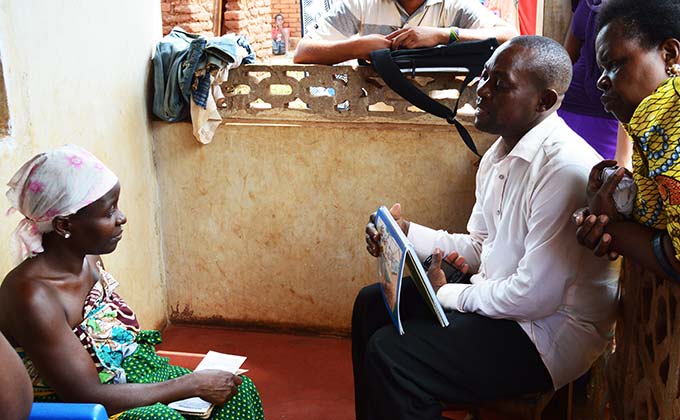Learning Agenda Project for CHWs

Location
Tanzania
Background
This study is helping the government of Tanzania develop its national cadre of community health workers and ensure continued access to essential care for HIV-positive women and their infants.
Study Objectives
- Help the Tanzanian Ministry of Health and Social Welfare (MOHSW) and its Task Force on Community Health Workers understand other community health worker programs and develop a more harmonized, community-based approach to preventive care
- Analyze data on HIV-positive mothers and children lost to follow-up while in care of the National AIDS Control Program or in care of organizations supported by PEPFAR
- Develop integrated facility-community implementation strategies to improve retention and scale-up community-based programs
- Support the MOHSW and its partners in evaluating the scale up of their community-based programs
Key Facts
- Like many other low-income countries, Tanzania has a huge shortage of qualified human resources: the Tanzanian MOHSW reported in 2006 that about two-thirds of public health facility positions could not be filled
- Community health workers can effectively deliver a wide range of essential health services such as immunization, health education and management of uncomplicated childhood illnesses
Challenges faced by Tanzania’s community health worker (CHW) programs
- In scarce numbers, medical personnel are not able to capably supervise CHWs, resulting in insufficient documentation and evaluation of CHW programs. Tanzania’s government is unaware of the actual service coverage by CHW programs.
- Disease-specific initiatives run by local or international NGOs are have difficulty coordinating their efforts programmatically and geographically. These difficulties may lead to fragmented programs, which may not be effective
- The adoption of the new HIV treatment strategy "Option B," in which all pregnant women living with HIV are offered life-long lifelong antiretroviral therapy (ART), regardless of their CD4 count in order to achieve elimination of mother-to-child transmission by 2015 and keeping their mothers alive, can further complicate CHW programs that provide MNCH services in terms of coordination, human resources, supply chain management, and financing.
- Tanzania is in the process of implementing the Option B+ treatment regimen, and the U.S. government supports its transition to Option B+.
- CHWs will be crucial to rolling out the plan, but we do not know how Option B+ will affect already fragmented CHW programs or whether developing a more integrated CHW program will be possible.
- Furthermore, it is feared that expansion of ART will exacerbate the problem of loss to follow-up, which is already a complicated public health issue
Principal Investigator
Abdullah H. Baqui, JHSPH
Local Principal Investigator
Japhet Killewo, MUHAS
Funding
- USAID
Study Team
- JHSPH
- Tanzanian MOHSW
- Muhimbili University of Health and Allied Sciences (MUHAS)
